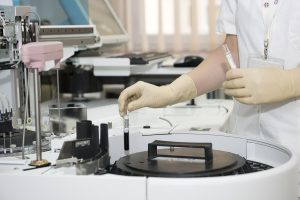 One of the concerns people who are diagnosed with depression have is knowing if medication treatment can help them. Many of us don’t want to take a medication if it is not necessary. However, when it comes to treatment for depression, a combination of both medication and therapy can be the best option for some people.
One of the concerns people who are diagnosed with depression have is knowing if medication treatment can help them. Many of us don’t want to take a medication if it is not necessary. However, when it comes to treatment for depression, a combination of both medication and therapy can be the best option for some people.
So let’s say you are diagnosed with Major Depressive Disorder and need to try an antidepressant medication. Your physician prescribes a medication and it doesn’t work very well. This begins a process of trial and error in order to find a medication that works best with your biochemistry. What would happen if instead of randomly trying another antidepressant, there was a way to better target a medication that would work?
We may be getting closer to matching antidepressants with your biochemistry. Here is the thinking. The selection would be done by pharmacogenomic testing. Based on a new study that was presented at the American Psychiatric Association’s annual 2018 meeting, this type of approach would increase the likelihood of a person responding to antidepressantst the second time around.
The approach, using the GeneSight test, incorporates personal genetic data with medication history. Twelve genes are involved along with 5 medication choices. Your cheek is swabbed for DNA, sent to a lab and returned in 36 hours with a chart listing drugs that work best on you. And it seems to be working for those people who have had treatment failures. Results showed marked impovement in those patients with the GeneSight test.
Using your genetic code to better pick medications for treatment has been a work in progress, so this is a very exciting finding. For those who have tried a round or two of medications with no success, this could be an answer. The more we have a better idea of which medications work best for which patients, the better. And pharmacogenomic testing could be a big help.


